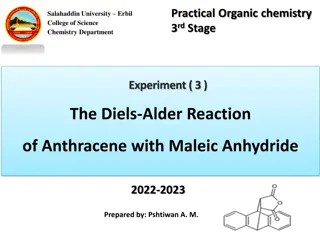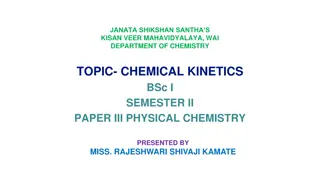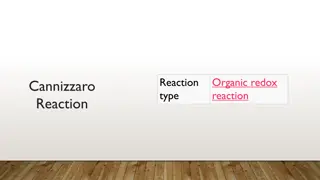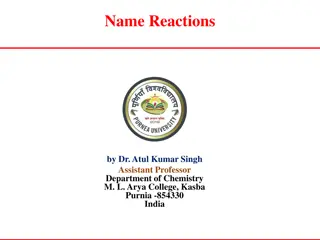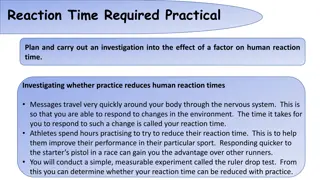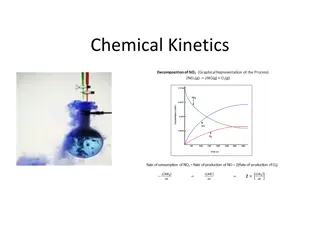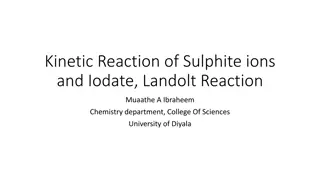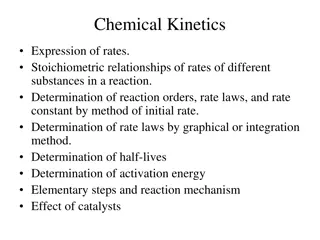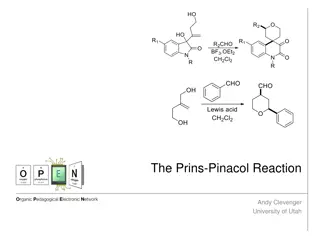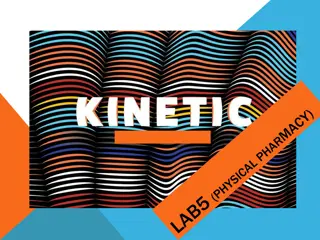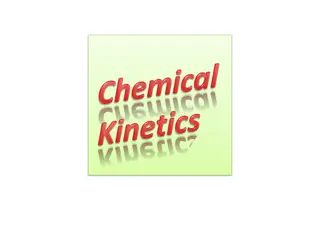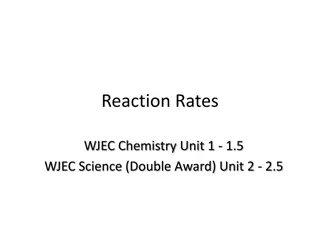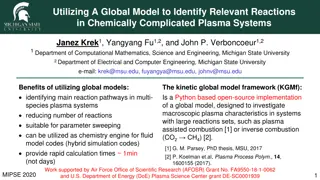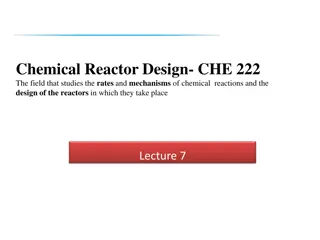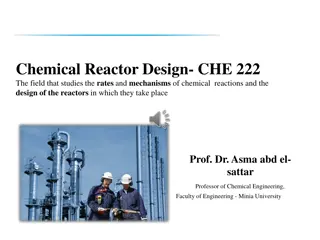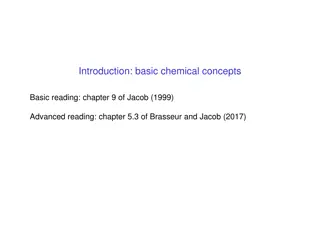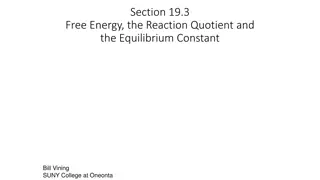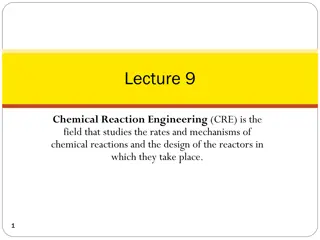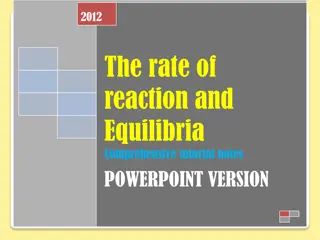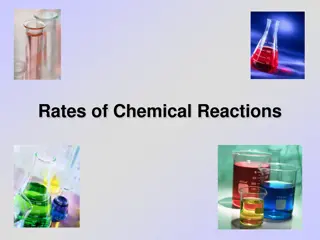Chemical Reaction Factors
Explore the impact of temperature, concentration, catalysts, and surface area on the rate of chemical reactions. Learn how these factors influence reaction speed through real-life applications and experiments such as Alka-Seltzer in water and magnesium ribbon with different HCl concentrations.
Download Presentation

Please find below an Image/Link to download the presentation.
The content on the website is provided AS IS for your information and personal use only. It may not be sold, licensed, or shared on other websites without obtaining consent from the author.If you encounter any issues during the download, it is possible that the publisher has removed the file from their server.
You are allowed to download the files provided on this website for personal or commercial use, subject to the condition that they are used lawfully. All files are the property of their respective owners.
The content on the website is provided AS IS for your information and personal use only. It may not be sold, licensed, or shared on other websites without obtaining consent from the author.
E N D
Presentation Transcript
Inquiry Lab: Alka-Seltzer in water Does the temperature makes a difference in the reaction? Which temperature did the reaction went by faster? Why do you think?
Why? As temperature increases, Kinetic energy increases Then particles bump/collide with each other more constantly thus making the reaction faster
Concentration Which concentration of the hydrochloric acid did the magnesium metal reacted faster, 3M or 1M? Why do you think?
What will increase the rate/speed of a chemical reaction? Anything that increase the contact/ collision of reaction. Chemical reactions can happen at different rates. Which reactions occurs so quick? So slow? Examples: Explosion? (in seconds) Decaying of leaves? (in months) Digestion of food (hours) or metabolism?
Factors that affect the rate of reaction Temperature Concentration Catalyst/ inhibitor Surface area
Factors Affecting Rate (speed) of reaction 1.Temperature Relationship between temperature and reaction rate: direct As temp. increases, reaction rate increases Why? Kinetic energy increases as particles move faster thus number of collision between reactants increases causing the reaction to increase.
Temperature Real life application? Why do you need to store food in the refrigerator? Milk or cheese To delay reaction (spoiling) At room temperature or higher, bacteria will react with the food faster
Phetlab:https://phet.colorado.edu/en/simulation/legacy/rea ctions-and-rates
2. Concentration Demonstrate: HCl in different concentrations + Magnesium ribbon Which reaction will proceed faster 1M HCl or 3M HCl? Usually, the greater the amount of substances in reactants, the faster the reaction.
Checking for understanding 1 Choose the correct answer. 1. As the temperature increases, the rate of reaction (increases ,decreases) 2. At higher temperature, Kinetic energy (increases, decreases) thus collision frequency increases. 3. As the concentration increases, number of particles participating in the reaction is (more, less) and the collision between particles (decreases, increases).
3. Surface Area Example: whole potato vs potato in boiling water Demo: which will have faster reaction? Why? Alka-Seltzer powder vs whole The greater the surface area between reactants is in contact , the more collision will occur and thus increasing rate of reaction. The smaller the pieces the greater the surface area
Affecting speed of reaction 4. Catalyst Are substances that speed up a chemical reaction without being consumed. It is recovered after the reaction (Example: enzymes ( biological substances) (Insulin turns sugar into energy) How does it affect the reaction? It changes the activation energy by creating an alternate route to get to the product.
Effect of catalyst in activation energy?
Inhibitor Substances that prevent or slow down a chemical reaction. It delays or stops the reaction to occur Example: medicines that stop pain
Checking for understanding 2 Identify: 1. What is the name of a substance that speeds up a chemical reaction? 2. what is the name of the substance that slows down a chemical reaction? True or false. Explain if answer is false 3. The rate of reaction increases as surface area decreases. 4. A catalyst speeds up a reaction by creating an alternate route for activation energy. 5. The smaller the pieces of the particles, the smaller the surface area is in contact with the other reactant.
Watch the video: Factors affecting rate of reaction https://www.youtube.com/watch?v=OttRV 5ykP7A
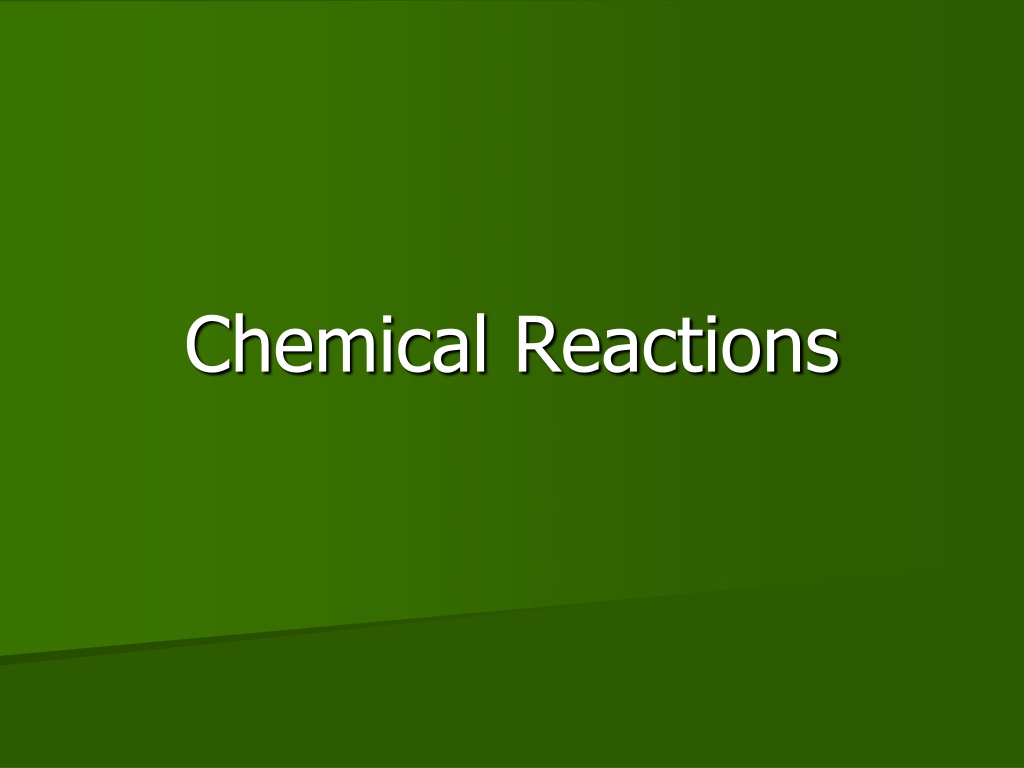
 undefined
undefined




